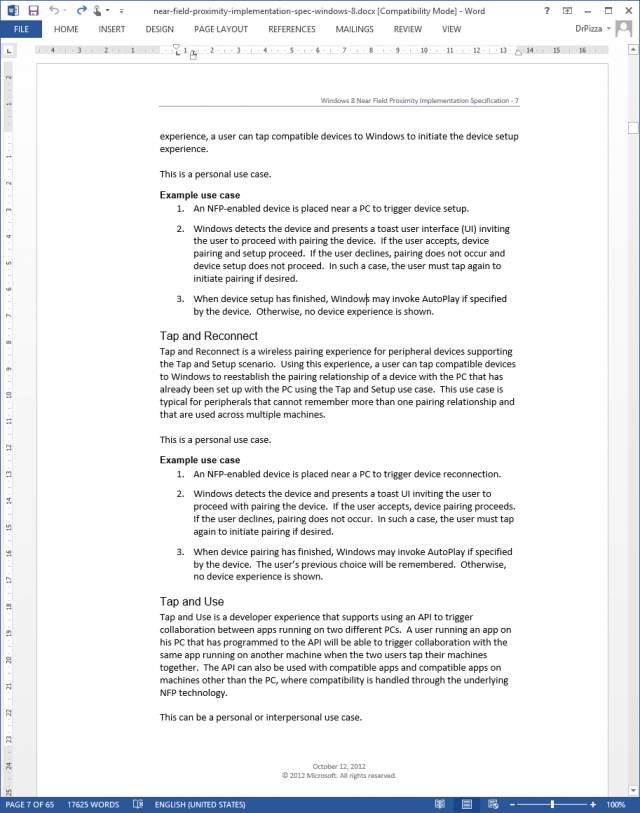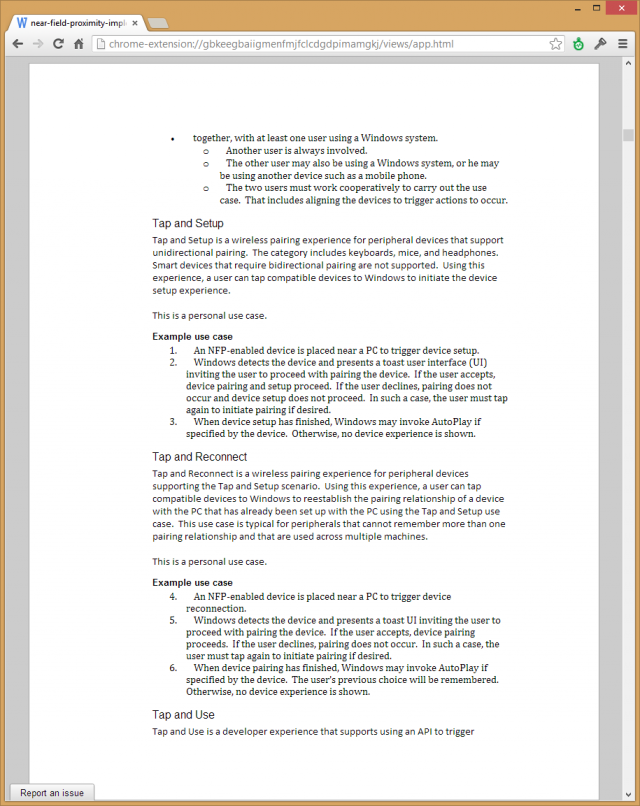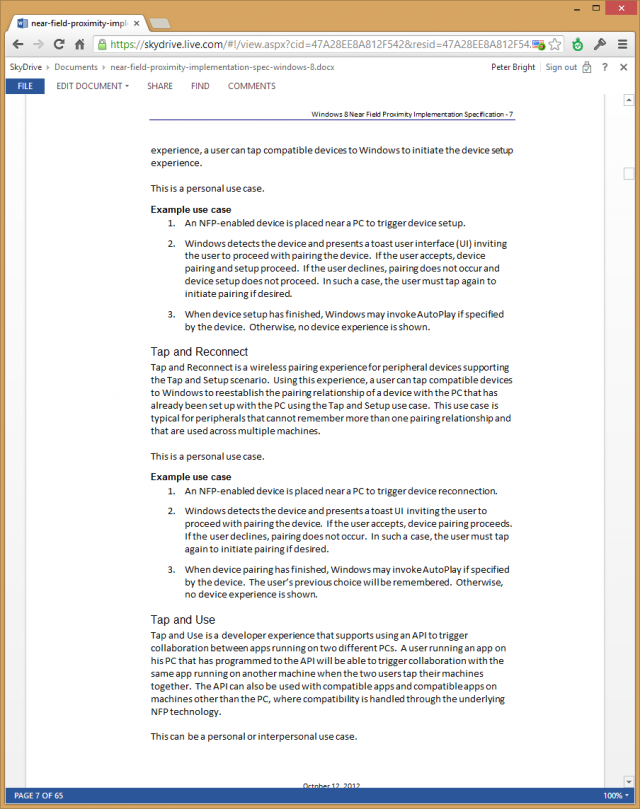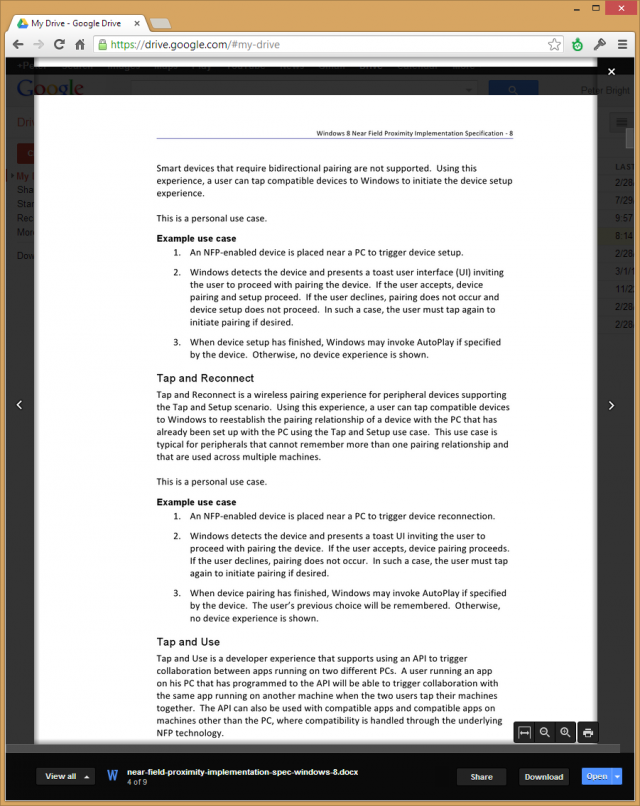
Google has released a beta version of an extension for its Chrome browser that lets you read Word, Excel, and PowerPoint documents directly within the browser. The Chrome Office Viewer, which requires the use of Chrome's beta or dev channels, has long been available as part of Chrome OS on Chromebooks. Now it's available on regular PCs.
With the extension installed, the desktop browser, both in OS X and Windows, acts like its Chrome OS counterpart. Office documents open directly in the browser whether originating from links or the hard disk. Just like in Chrome OS, this support is read-only at present. In use, it's very similar to Chrome's built-in PDF support. It has the same toolbar with its limited set of features. You can zoom, print, and save, and that's about it.
The plugin is a hefty thing. The download is a couple of dozen megabytes, and it uses Google's Native Client, which provides a sandboxed environment for native code extensions. It runs offline, which means that it can be used to view files without uploading them to a service such as Microsoft's Office Web Apps or Google's own Drive and Docs.
The extension is labeled beta, and it's a justified moniker. The output quality is currently pretty poor. We tried it with a fairly simple Word document, and many parts were shown incorrectly. Headers and footers were omitted, list numbering was broken, fonts were incorrect, and certain pieces of formatting such as borders and shading were missing.

A document in Word. Notice that it uses a sans-serif typeface throughout, it has a header and footer, and two separate numbered lists.

The Chrome Office Viewer uses a serif typeface for some of the text, numbers the separate numbered lists contiguously, omits the headers and footers, and paginates differently.
Both the Office Web Apps, free to anyone who has a SkyDrive account, and Google Drive apps, likewise available at no cost, provided a more authentic rendering of the document. The Office Web Apps go a step further, too, allowing editing as well as reading (Google Docs can't directly edit Office documents, though it can convert them to an editable form). Third-party Chrome extensions can even let you automatically use the Office Web Apps to open linked Office documents.
Even if offline access is important to you, there are better options. There's Office itself of course, and if you don't want to pay for Office, OpenOffice also provides greater accuracy.

The Office Web App gets these things all right.

Google Drive's Office viewer doesn't get the document quite right—the pagination is different—but the fonts, numbering, and headers/footers are all handled correctly.
As such, the extension is currently of limited value. Its offline capabilities are important for Chromebooks because they can't run real applications. For online users and OS X, Windows, or Linux users, there is better software out there.
What makes the extension more interesting is the direction that Google may be heading. If it were to pick up editing capabilities, it would be transformed into an Office competitor. A somewhat limited one, especially given the fidelity issues that it currently has, but a viable alternative for simple tasks.
Google has the expertise to develop the extension in this way, too. Last year it bought Quickoffice, which makes office productivity software, with editing, for iOS and Android. Poke around the extension, and you'll find that it actually contains native Quickoffice code. Turning the Chrome Office Viewer into just plain Chrome Office could require little more than providing a user interface for Quickoffice's existing editing features.
This would not only transform the Chrome Office Viewer, it would help Chromebooks evolve beyond novelty machines. Currently they are convenient for checking out a Web page while watching TV, but they could become laptops that can fill a wide range of productivity tasks, both on- and offline. And then, for the first time, Google could challenge Microsoft directly in both the operating system and office productivity markets.
No comments:
Post a Comment
Let us know your Thoughts and ideas!
Your comment will be deleted if you
Spam , Adv. Or use of bad language!
Try not to! And thank for visiting and for the comment
Keep visiting and spread and share our post !!
Sharing is a kind way of caring!! Thanks again!